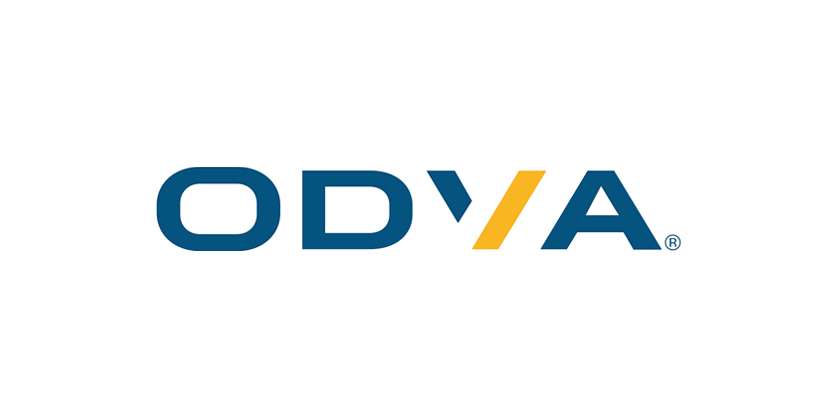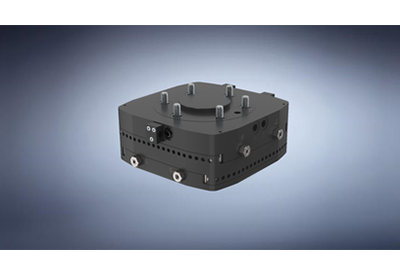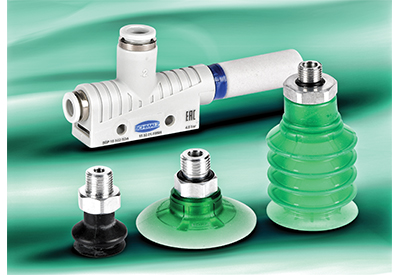Process Device Profiles for Ethernet/IP Expanded to Include RTD and Thermocouple Temperature Sensors
November 7, 2024

Process Device Profiles for Ethernet/IP Expanded
ODVA has announced that new process device profiles for temperature sensors are now available as a part of The EtherNet/IPTM Specification. Process device profiles help system integrators and end users to be able to efficiently commission new devices and to more easily replace devices for optimized plant operations. Process device profiles provide standardization for process variables and diagnostics for smoother vendor interoperability and easier controller data integration from EtherNet/IP network capable field devices.
Device profiles are available for Coriolis flow, electromagnetic flow, vortex flow, standard pressure, scaled pressure, and now Resistance Temperature Detector (RTD) and thermocouple temperature devices. The value of the standard formatting of process variables, data totals, and diagnostics that process device profiles provide is further enhanced with the new addition of temperature profiles.
The introduction of process device profiles for temperature, in addition to flow and pressure, supports more seamless integration for end users through a greater ecosystem of EtherNet/IP device interchangeability. The temperature device profile contains one instance of the process measurement value object to provide a temperature value and status. The device profile also contains several process device diagnostics instances to provide diagnostic information. Temperature devices measure relative heat or cold using a thermocouple or RTD device.
Thermocouples rely on two dissimilar metals joined at one end producing a voltage difference between the two materials to measure temperature. The voltage is directly proportional to the temperature difference between the two ends. RTDs operate based on the principle that the electrical resistance of a metal increases with temperature. RTDs tend to provide greater accuracy while thermocouples can offer a greater temperature sensing range.
“The addition of a new temperature process device profiles for EtherNet/IP provides end users with another valuable tool to enable more efficient device commissioning and replacement,” said Dr. Al Beydoun, President and Executive Director of ODVA. “All EtherNet/IP process device profiles are aligned with the Process Automation Device Information Model (PA-DIM) and NAMUR NE 107 diagnostics. This allows for easier movement of data from the factory floor to the cloud for analysis and action and quicker identification of maintenance issues through standardization.”
EtherNet/IP process device profiles allow for improved vendor interoperability through standardized access to process variables and critical diagnostics such as NAMUR NE 107 status signals as well as more seamless integration with PA-DIM. The addition of temperature devices to EtherNet/IP process device profiles enlarges the ecosystem available devices that offer simpler commissioning and enhanced asset monitoring and integration into higher level PLC, DCS, and cloud-based systems.
ODVA is continuing to adapt EtherNet/IP to the full requirements of the process industries through support of technologies including Ethernet-APL, PA-DIM, NAMUR, FDI, and process device profiles. Visit odva.org to obtain the latest version of The EtherNet/IP Specification including temperature process devices profiles for EtherNet/IP.
About ODVA
ODVA is an international standards development and trade organization with members from the world’s leading automation suppliers. ODVA’s mission is to advance open, interoperable information and communication technologies for industrial automation. Its standards include the Common Industrial Protocol or “CIP™,” ODVA’s media independent network protocol – and industrial communication technologies including EtherNet/IP, DeviceNet® and others.
For interoperability of production systems and their integration with other systems, ODVA embraces the adoption of commercial-off-the-shelf, standard Internet and Ethernet technologies as a guiding principle. This principle is exemplified by EtherNet/IP – today’s leading industrial Ethernet network. Visit ODVA online at www.odva.org.
DeviceNet is a registered trademark of ODVA, Inc. CIP, CIP Security, EtherNet/IP, and ODVA CONFORMANT are trademarks of ODVA, Inc. Other trademarks are property of their respective owners.
More Information
For more information, contact:
Steven Fales
ODVA
4220 Varsity Drive, Suite A, Ann Arbor, MI 48108-5006 USA
TEL +1 734 975 8840
Fax +1 734 922 0027
Email sfales@odva.org
Related Story
Ethernet/IP Concurrent Connections for Critical Applications Now Available with CIP Safety
ODVA is pleased to announce that the CIP SafetyTM on EtherNet/IPTM technology has been enhanced to allow for the use of Concurrent Connections for applications requiring both high availability and functional safety. Concurrent Connections allow for communication redundancy between multiple producing and consuming devices for the most critical automation processes. CIP Safety provides fail-safe communication between nodes such as safety I/O blocks, safety interlock switches, safety light curtains and safety controllers in both machine and process automation safety applications up to Safety Integrity Level (SIL) 3 according to IEC 61508 standards.





